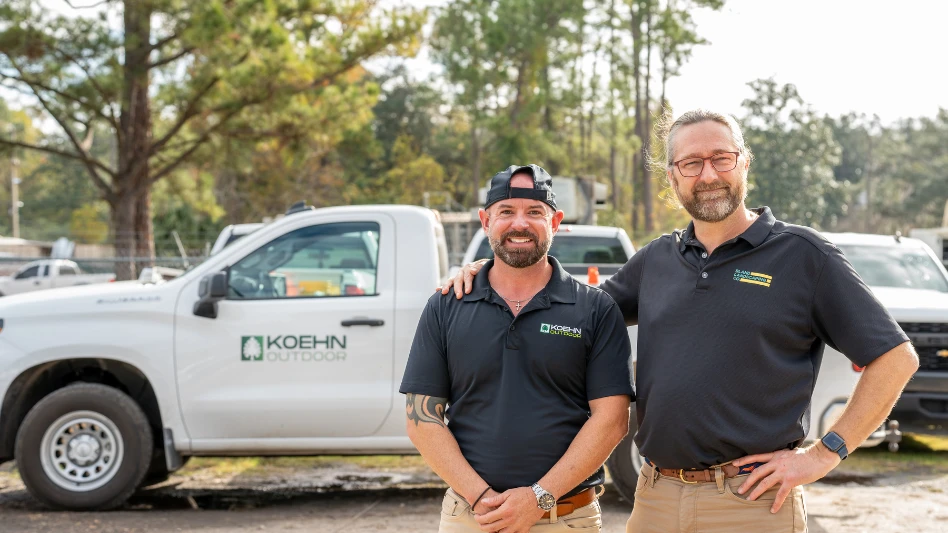 Much has changed in the landscape industry since we first wrote about private equity in Lawn and Landscape’s 2009 article “Acquiring equity” (bit.ly/llequity) and the L&L piece “Wrecking stereotypes” in 2014 (bit.ly/llwreck).
Much has changed in the landscape industry since we first wrote about private equity in Lawn and Landscape’s 2009 article “Acquiring equity” (bit.ly/llequity) and the L&L piece “Wrecking stereotypes” in 2014 (bit.ly/llwreck).
In the last year alone, we have seen KKR acquire Brickman from Leonard Green, then acquire ValleyCrest from MSD Capital, Merit Service Solutions (backed by L2) acquired Sunterra in Texas, Terracare (Progress Equity) acquired VMC in Texas and most recently CIVC, a former long-time investor in Brickman, acquired Yellowstone Landscape Group with operations in Georgia, Florida and Texas.
All signs point to an even busier M&A level of activity in 2015, which could well see the highest number of green industry transactions in decades.
It reminds me of a question the late Burt Sperber, founder of ValleyCrest Landscape Cos., used to ask my clients: “When is the best time to sell a landscape company?” The answer: “When people are buying them.”
|
Pros and cons of a financial influx Private equity investment can be highly positive for the commercial landscape industry, but it can also have a downside. Positives
Negatives
|
Factors driving this activity include:
- Record levels of un-invested private equity capital
- Aggressive lending for transactions at historically low interest rates
- High-profile transactions at the top of the industry
- A highly fragmented market
- Maintenance companies provide an attractive B2B service with high levels of contractually recurring revenues
- Aging Baby Boomer business owners
- Improved business performance with revenue growth and increased earnings
- Higher levels of new contract sales, increased enhancement budgets and better customer retention
- A seller-friendly market in terms of valuations, terms and conditions
- Today, the top 30 companies alone (maintenance and design/build focused, not arbor- or spray- focused businesses) would include: seven private equity backed, five employee stock ownership plan and two divisions of publicly traded companies.
These top companies would range from BrightView (the rebranded Brickman/ValleyCrest) at $2 billion in annual sales to companies with sales at approximately $30 million. The second largest company is TruGreen LandCare, owned by Aurora Resurgence, with a reported $200 million in revenue and a new CEO, Mike Bogan, formerly of Brickman.
This certainly implies a renewed excitement about the opportunity in the industry. In terms of market share, estimates put the annual spend or addressable market for commercial landscape services at $30- $40 billion.
This would mean BrightView commands 5-7 percent of the market. The balance of the companies in the industry are primarily privately-held with less than $30 million in annual revenue – most less than $5 million. Thus, private equity investors would still consider this a highly fragmented market notwithstanding more than 17 years of consolidation. That consolidation has shrunk the number of larger maintenance-driven companies, making them the most attractive target.
If you look at the industry today, it looks very different than when the roll-up era of the late 1990s began. While the industry has always been highly fragmented, the number of large independently owned and operated companies has greatly diminished. This is a natural byproduct of a maturing industry.
Think about other examples, such as home improvement (Home Depot and Lowes), grocery stores (Albertsons, Kroger, Safeway and Publix), pharmacies (Walgreens and CVS) and so on.
As more institutional capital enters the industry and as larger property owners and managers look to rationalize their supplier base, we expect this trend to continue. While there will always be many small competitors, we anticipate the ongoing shrinking of the middle-class.
The best-built businesses are not built to sell; they are built to last. They are built the way you’d want your company to look if you were planning to own and operate it in perpetuity. However, a well-built business can be a very hot commodity in a market with no shortage of professional private equity buyers who want and need to grow their own businesses more than organic growth will allow.
So, what’s the punchline? That you as the owner of a business cannot afford to think the industry is the same as it has been since you started your company. Size, ownership profile and capital structure of larger competitors has changed dramatically and this affects you.
Companies of scale with institutional capital behind them can be both a likely buyer and a formidable competitor. It also means that whether your hopes and dreams are tied to one day selling your business or not, you need to understand the underlying fundamentals of value and marketability.
This is vital for you to be prepared when the time comes for you to maximize the return you will receive for the years of hard work building your landscape company.
The author is managing partner, CCG Advisors, a business advisory firm in Atlanta.
Never too early
For more on preparing your business to be sold, read our December cover story “The Easiest Exit” on why you should start thinking about selling your business now, even if you aren’t ready to hand over the keys.
bit.ly/easyexit

Explore the March 2015 Issue
Check out more from this issue and find your next story to read.
Latest from Lawn & Landscape
- Terra Nova's Sedum Conga Line variety wins Best of 2024 Perennial award
- Different ways to distribute
- Case's 580EV electric backhoe loader wins Good Design Award
- Davey Tree promotes Dan Herms to VP, GM of Davey Institute
- Caterpillar's Cheryl H. Johnson set for April retirement
- Registration open for sixth annual Lawn & Landscape Technology Conference
- 12 interview questions to help you hire winners
- To Lease or Not to Lease





